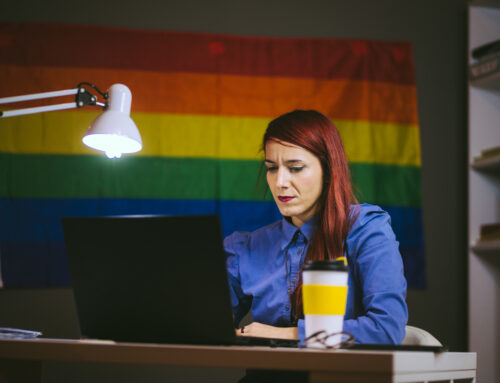Same-sex couples have the same right to marry their partners as heterosexual couples. Likewise, when LGBT couples separate, they go through the same process to obtain a legal divorce as all other couples.
However, when a same-sex couple has children, custody can bring up unique issues. Often, one parent is not the biological parent of the child or children. If that person did not formally adopt the child, or if a custody agreement was not made in advance, the non-biological parent may face an uphill battle for custody rights.
When two people of the same sex are raising a child together, they can face many challenges when it comes to child custody. If you are concerned about your ability to protect your parental rights as an LGBT person, it is important to consult with an experienced family law attorney. They can help guide you through the process and ensure that your rights are fully protected.
Custody Challenges for LGBT Families
Child custody refers to a parent’s rights and responsibilities concerning their children. Those rights and responsibilities extend to all parents with legal custody.
A child’s biological parents have legal custody unless custody is modified by the court. Likewise, same-sex couples who adopted their children together have legal custody unless a court decides otherwise. Alternatively, a non-biological parent who completes a stepparent adoption would have legal custody of a child.
When same-sex partners have legal custody of their children, child custody is decided the same way as it is in other divorces. However, if only one parent has legal custody of the children, that is not the case.
In these instances, the non-custodial spouse has no legal right to make decisions regarding the child or demand visitation with the child. Instead, the non-custodial parent can petition the court for reasonable visitation with the child during an LGBT divorce.
Child Custody When Only One Spouse is the Legal Parent
In some LGBT families, only one parent is the child’s legal parent. For example, a couple may use a surrogate to give birth to one spouse’s biological child. Likewise, one partner may use a sperm donor to have a child. Alternately, a spouse may have children from a previous relationship and the other spouse has not completed a stepparent adoption.
Even if a non-biological parent raises a child from birth, that does not give the parent legal rights. However, California Code Section §3100(a) allows the non-biological or non-adoptive parent to petition for reasonable visitation with the child.
Reasonable visitation is granted based on the best interests of the child. The court uses the same factors to decide the child’s best interest in LGBT divorces as it does in opposite-sex divorces.
Same-sex parents also have the same rights to child support payments as opposite-sex parents. The courts have extended the child support laws to same-sex couples. Therefore, the court uses the same child support guidelines to calculate support payments.
However, if the legal parent objects to their spouse having visitation rights, it can complicate matters. Generally, courts allow parents to decide who takes part in their children’s lives.
Sexual Orientation Cannot Be Used as a Basis for Custody Decisions
Sexual orientation should not be a factor when considering the child’s best interest during a custody action. The exception would be if the parent’s sexual orientation harms the child or adversely affects the child.
However, California law states that the court does not consider the following factors of a parent or legal guardian when deciding the best interest of the child:
- Sexual orientation
- Sex
- Gender expression
- Gender identity
Therefore, a parent would need overwhelming evidence that a parent’s sex, gender identity, or sexual orientation would harm the child before a court would consider these factors when deciding custody cases.
LGBT Couples Can Simplify Custody Issues by Negotiating an Agreement
The best situation is for spouses to negotiate a reasonable child custody and visitation schedule. Parents can work out a reasonable visitation schedule that allows both of them to continue to be active in their children’s lives.
When couples cannot reach an agreement, they may want to consider a mediator for child custody matters. Family therapists and child psychologists can also be helpful when developing a parenting plan and time-sharing agreement.
Seeking Legal Advice for an LGBT Divorce Lawyer
Divorce and child custody issues are difficult for any couple. Because of the unique issues facing LGBT couples, you should seek advice from a family lawyer. They can help you explore your options for child custody after your divorce.






